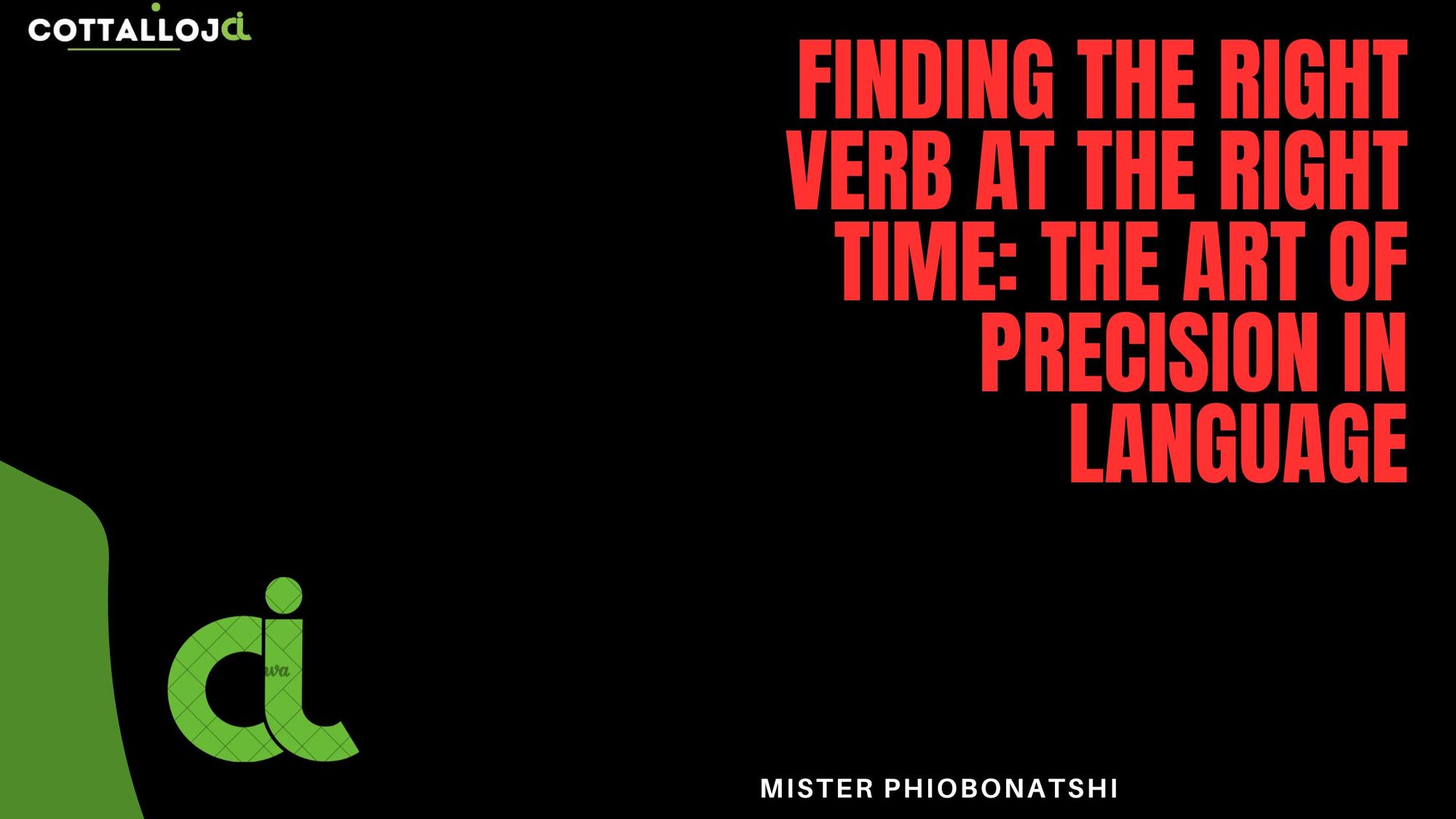Introduction
Language is a remarkably versatile tool. Words have the power to convey emotions, paint vivid images, and communicate ideas. At the heart of this linguistic wonder is the verb, a vital element that serves as the engine of a sentence. Finding the right verb at the right time can transform a dull, uninspiring sentence into a masterpiece of expression. In this blog post, we'll explore the importance of selecting the right verb and offer some tips on how to do so effectively.
The Power of Verbs
Verbs are the action words of our language. They describe what is happening, was, or will happen in a sentence. The choice of verb can significantly impact the clarity, tone, and vividness of your writing. Consider the following examples:
- She walked to the store.
- She sprinted to the store.
In the first sentence, the verb "walked" conveys a sense of normalcy and routine. However, in the second sentence, the verb "sprinted" introduces urgency and excitement, instantly making the scene more engaging.
Verbs also help set the tone and mood of a sentence. Compare these two sentences:
- The waves gently lapped at the shore.
- The waves angrily crashed against the shore.
In the first sentence, the verb "gently lapped" creates a soothing and calm atmosphere, while in the second, "angrily crashed" evokes a sense of turbulence and unrest.
Choosing the Right Verb
So, how can you find the right verb for your writing? Here are some tips to help you make the best choice:
Consider the context: Before selecting a verb, carefully analyze the context of your sentence. What emotions or ideas do you want to convey? Is the action ongoing or completed? The surrounding words and phrases will provide clues to guide your choice.
Avoid vague verbs: Beware of using generic verbs like "do," "have," or "make." These verbs lack specificity and often weaken your writing. Instead, opt for verbs that paint a clear picture of the action.
Use active verbs: Active verbs describe an action performed by the subject, making your writing more direct and engaging. Compare "The cake was eaten by him" to "He devoured the cake."
Tap into your senses: Think about how the action might engage the senses. Does it produce a sound, smell, or taste? Incorporating sensory details can make your writing more immersive.
Consult a thesaurus: A thesaurus can be a valuable tool for finding synonyms and exploring different verb options. However, use it with caution to ensure that your chosen verb fits the context accurately.
Read widely: Exposure to a variety of writing styles and genres can expand your vocabulary and help you discover new verbs. Reading allows you to see how accomplished writers use verbs effectively in different contexts.
Let's delve into some examples of how selecting the right verb can enhance various activities and descriptions:
1. Cooking:
a. He prepared dinner.
b. He meticulously crafted dinner.
In the first sentence, "prepared" is a straightforward verb that tells us he made dinner. However, in the second sentence, "meticulously crafted" adds a layer of care and attention to detail, suggesting that the dinner was prepared with great skill and precision.
2. Sports:
a. She played tennis.
b. She dominated the tennis court.
While the first sentence simply states that she played tennis, the second one conveys a sense of mastery and control over the game, making her performance more impressive.
3. Travel:
a. They traveled to the beach.
b. They embarked on a journey to the beach.
In the first sentence, "traveled" provides basic information about their destination. In contrast, the second sentence, with "embarked on a journey," creates a sense of adventure and anticipation, emphasizing that the trip is more than just a simple commute.
4. Nature Descriptions:
a. The leaves fell from the tree.
b. The leaves gracefully descended from the tree.
While both sentences describe the same action, the second one adds an element of beauty and elegance to the scene by using "gracefully descended."
5. Problem-Solving:
a. They solved the problem.
b. They ingeniously solved the problem.
In the first sentence, "solved" simply states the outcome. In the second sentence, "ingeniously solved" highlights the creativity and intelligence applied to find a solution.
6. Music:
a. The band played a song.
b. The band passionately performed a song.
The second sentence with "passionately performed" conveys that the band played with deep emotion and intensity, elevating the musical experience.
7. Reading:
a. She read the book.
b. She devoured the book.
While the first sentence indicates a casual reading, the second one with "devoured" suggests that she enthusiastically and eagerly consumed the contents of the book.
These examples illustrate how the choice of verbs can transform the perception of various activities and descriptions, adding depth, emotion, and nuance to your writing. By selecting the right verbs, you can engage your readers more effectively and create a vivid and memorable narrative.
Conclusion
Finding the right verb at the right time is a skill that can elevate your writing to new heights. Verbs are the building blocks of sentences, and choosing the perfect one can enhance clarity, convey emotions, and bring your writing to life. With practice and a keen awareness of context, you can master the art of selecting verbs that engage your readers and make your writing shine. So, the next time you sit down to write, remember the power of verbs and the impact they can have on your wordsmithing journey.






